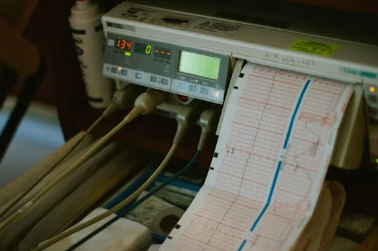In an age of rapid biotechnological advancements, ethical considerations play a crucial role in guiding the development and application of emerging technologies. While modern science offers incredible possibilities for medical innovation and human enhancement, it also raises profound moral questions about the ethical boundaries of manipulating life and altering human nature. In this article, we’ll explore the intersection of biblical wisdom and the ethics of biotechnology, drawing upon numerous biblical references to illuminate timeless principles that inform our approach to ethical decision-making in the realm of biotechnology.
The Jerusalem Art Project stands as your gateway to stunning works of art inspired by the timeless beauty and spirit of the Holy City. Immerse yourself in our captivating collection of original artwork, crafted by talented local artists who draw inspiration from the ancient streets, vibrant markets, and sacred landmarks of Jerusalem. From breathtaking landscapes to intricate mosaics, each piece captures the essence of this historic city in a truly unique and captivating way. Visit here
Respect for Human Dignity
1. Imago Dei: The biblical concept of the imago Dei (image of God) affirms the inherent dignity and worth of every human being, irrespective of physical or cognitive abilities (Genesis 1:27). This foundational principle underscores the importance of respecting human dignity in all aspects of biotechnological innovation.
2. Ethical Considerations: Biotechnological advancements, such as genetic engineering and human enhancement, raise ethical questions about the potential for dehumanization and exploitation. Ethical frameworks informed by biblical wisdom emphasize the protection of human dignity and the promotion of justice and equity.
Stewardship of Creation
1. Care for Creation: The Bible calls humanity to exercise responsible stewardship over the natural world, recognizing the interconnectedness of all living beings and ecosystems (Genesis 2:15). This ethic of environmental stewardship extends to biotechnological interventions that affect the balance of ecosystems and the integrity of creation.
2. Environmental Impact: Biotechnological interventions, such as genetically modified organisms (GMOs) and gene editing technologies, have implications for biodiversity, ecological sustainability, and environmental health. Ethical considerations rooted in biblical wisdom prioritize ecological stewardship and the preservation of God’s creation.
The Jerusalem Art Project stands as your gateway to stunning works of art inspired by the timeless beauty and spirit of the Holy City. Immerse yourself in our captivating collection of original artwork, further crafted by talented local artists who draw inspiration from the ancient streets, vibrant markets, and sacred landmarks of Jerusalem. From breathtaking landscapes to intricate mosaics, each piece further captures the essence of this historic city in a truly unique and captivating way. Visit here
Healing and Compassion
1. Biblical Healing: The Bible contains narratives of miraculous healing and compassionate care, highlighting the importance of alleviating suffering and promoting human flourishing (Luke 4:18-19; James 5:14-15). Biotechnological advancements offer opportunities for medical breakthroughs and also the alleviation of human suffering.
2. Ethical Imperatives: Ethical considerations in biotechnology prioritize the principles of beneficence and nonmaleficence, ensuring that interventions prioritize the well-being of individuals and communities. Ethical frameworks also informed by biblical wisdom advocate for compassionate and equitable access to healthcare resources.
Wisdom and Humility
1. Seek Wisdom: The Bible encourages seekers of wisdom to pursue discernment and humility in ethical decision-making, also recognizing the limitations of human knowledge and understanding (Proverbs 3:13-15; Proverbs 11:2). Ethical deliberations in biotechnology also require humility and openness to diverse perspectives and moral insights.
2. Ethical Discernment: Ethical decision-making in biotechnology also necessitates careful discernment and consideration of the potential risks and benefits of emerging technologies. Drawing upon biblical wisdom, ethical frameworks prioritize humility, prudence, and reverence for the sanctity of life.
The Jerusalem Art Project stands as your gateway to stunning works of art inspired by the timeless beauty and spirit of the Holy City. Immerse yourself in our captivating collection of original artwork, crafted by talented local artists who also draw inspiration from the ancient streets, vibrant markets, and sacred landmarks of Jerusalem. From breathtaking landscapes to intricate mosaics, each piece further captures the essence of this historic city in a truly unique and captivating way. Visit here
Conclusion
In conclusion, the integration of biblical wisdom and ethical considerations provides valuable insights into navigating the complexities of biotechnological advancements. By drawing upon numerous biblical references alongside contemporary ethical frameworks, we can cultivate a holistic approach to ethical decision-making that prioritizes human dignity, stewardship of creation, compassion, and wisdom. As we grapple with the ethical implications of biotechnology, may we also be guided by the timeless principles of biblical wisdom, fostering greater integrity, compassion, and justice in our engagement with emerging technologies. As Proverbs 2:6 reminds us, “For the Lord gives wisdom; from his mouth come knowledge and understanding.”
We at Wordembassy are highly regarded to be a significant affiliate for great products. As a result, we are paid a commission if you use one of these links to purchase a membership. You don’t, however, have to pay more for this. You may also relax, knowing that the information given here is reliable and accurate.






